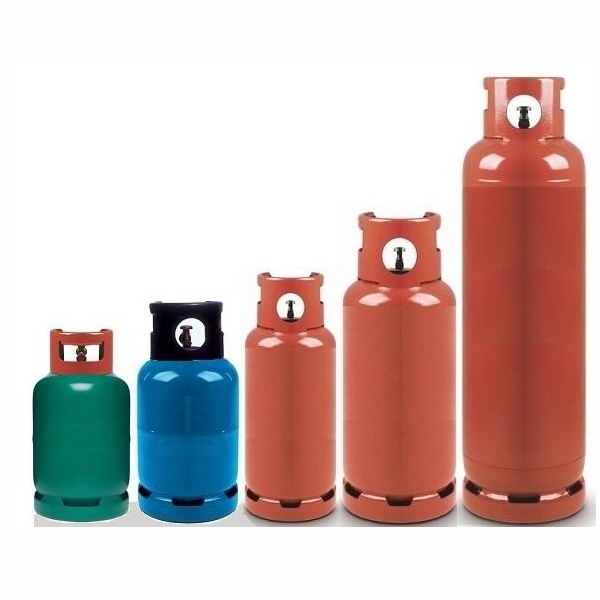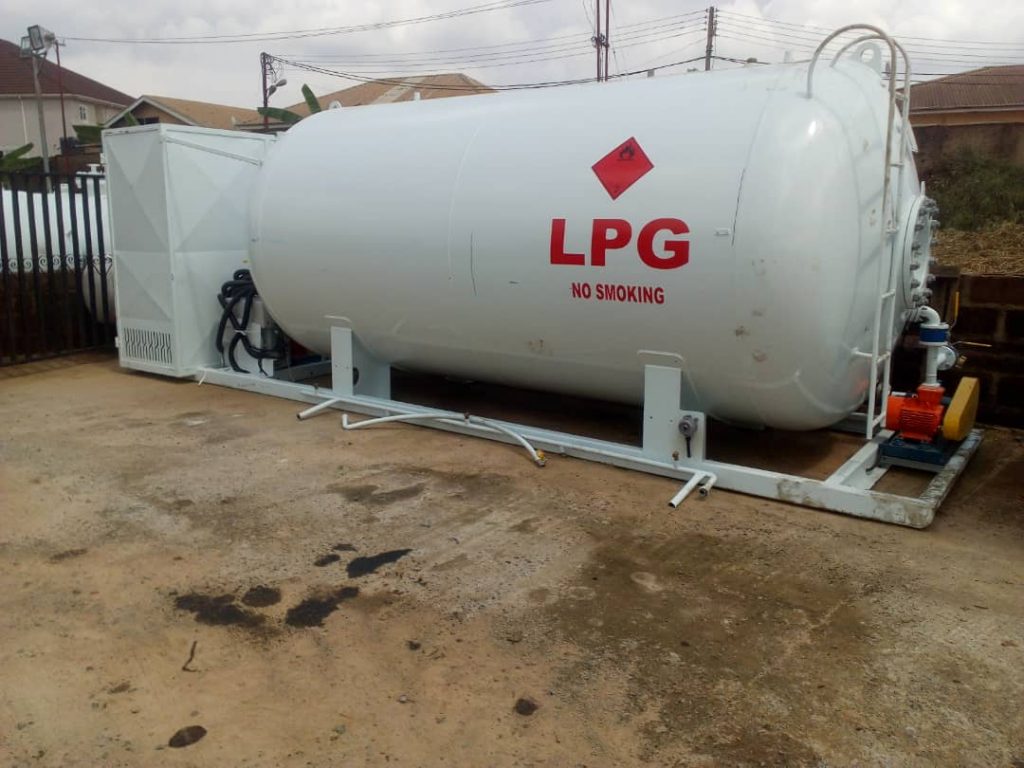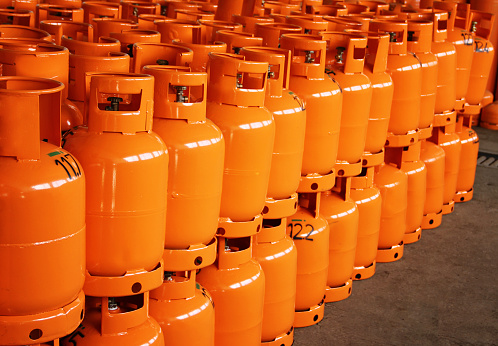In 2013, my brother ventured into sales and marketing of Liquefied Petroleum Gas (LPG), colloquially known as cooking gas in Nigeria. I visited his plant and a couple of months later, he persuaded me to follow suit. I carried out an independent feasibility study and in 2016, I ventured into the business. I have since been exposed to the alarming energy poverty in Nigeria and I think something drastic needs to be done to address the acute household energy challenges many Nigerians are facing.
The International Energy Agency and other organisations describe energy poverty as lack of access to electricity and clean cooking and heating systems. According to the World Bank, around 1.1 billion people don’t have access to electricity, and almost three billion still cook with polluting fuels like kerosene, wood, charcoal, and dung.
Available data shows that a large percentage of people in Nigeria and other Sub-Saharan African (SSA) countries still rely on these polluting fuels for cooking. Kirk Smith, Professor of Global Environmental Health at the University of California at Berkeley, said “A typical wood fire is about 400 cigarettes an hour worth of smoke.” Cooking smoke causes respiratory, cardiovascular, and other illnesses that have been found to be responsible for nearly 500,000 premature and preventable deaths annually in SSA.
Studies have also shown that aside from the adverse effects of dirty energy on human health and the environment, energy poverty also slows socio-economic development. To address these energy challenges and also provide opportunities for transforming the cooking sector, the World Bank launched the Africa Clean Cooking Energy Solutions (ACCES) initiative along with 15 African countries.
Launched in 2012, the mission of ACCES is to promote market-based clean cooking in the SSA region. By increasing access to modern technologies and cleaner fuels, the initiative seeks to alleviate the adverse health, environment, and socio-economic impacts of traditional cooking practices in SSA.
The World Bank is also working in partnership with Global Alliance for Clean Cookstoves to provide clean cooking solutions to 100 million households that are still using inefficient cookstoves and solid fuels for cooking. The partnership, announced at the Cookstoves Future Summit in New York in 2014, is a five-year efficient clean cooking and heating partnership. The partnership was forged to initially support clean cooking programmes in 12 countries, including Nigeria.
Energy poverty in Nigeria creates a feedback loop that contributes to the perpetuation of poverty, which has become a serious concern particularly since Nigeria was stated to have overcome India as the world’s poverty capital. This means that the country can begin to alleviate poverty by leveraging market-based clean cooking solutions, which are affordable and sustainable.
In this regard, Nigeria needs a national strategy that will entail promoting awareness to households regarding the adverse consequences of cooking smoke; aiding poor citizens to start using cleaner, safer cooking options, including LPG, natural gas, biogas, or efficient cookstoves. Nigeria is a net exporter of LPG; therefore, availability should not be an issue. Barely 15% of its production are consumed locally with the rest exported.
In 2015, total consumption of LPG in Nigeria was a paltry 400,000 metric tonnes. This translates to per capita consumption of less than 2.5kg, compared to per capita consumption in South Africa (7.28Kg), Ghana (9.45Kg) and Morocco (66.27Kg).
India’s LPG and clean cooking reform provides a case to study. India started its LPG reform years ago but not without challenges. The country created incentives to discourage diversions of subsidized cooking gas to the black market. In 2012, the government of India embarked on a Direct Benefit Transfer Scheme for LPG, also called the Pratyaksha Hastaantarit Laabh (PAHAL) programme. The programme is regarded as one of the largest cash transfer programmes in the world. Beneficiaries have unique identification numbers that allow for monitoring and effective payment. There is also a cap of six subsidised LPG cylinders per household per financial year.
A similar scheme can be adopted in Nigeria to ensure that people at the bottom of the financial ladder can receive adequate support to enable them switch to efficient cookstoves or LPG. With Nigeria’s enormous natural gas reserves, ranked 9th in the world, LPG and natural gas in general have the potential to revolutionise not only our cooking but every facet of the economy – from household energy to transportation and commerce.
In 2016, at the Nigeria LPG Association conference, Vice President Yemi Osinbajo, reeled out the administration’s gas policy. According to him, the gas policy aims at stimulating a gas-based industrialisation. While this is a noble goal, let there be a transition to clean cooking for millions of Nigerians before we can move to industrialisation. The low LPG penetration needs to be addressed and very quickly.
To enhance the accessibility, affordability and acceptability of LPG, there needs to be a regulatory framework that supports the usage of LPG by all. This would entail having a more favourable LPG pricing policy.
Price subsidies should be introduced on LPG, while the subsidy for kerosene should be phased out. One way to discourage the use of kerosene is to phase out the subsidy on the fuel. The economy as well as people’s health would be more positively affected by a subsidy on LPG than the existing one on kerosene. The LPG subsidy can also be less burdensome on the government than the kerosene subsidy if it targets only low-income households. In Ghana, Jordan, Mexico, Morocco, and Thailand, the governments keep the retail prices of LPG artificially low, while in Brazil and Dominican Republic, LPG vouchers were introduced for poor families. These are two different models for transmitting LPG subsidies.
Despite Nigeria’s gas policy, it is worrisome that LPG is still on the list of VATable items. Most LPG equipment are imported. Therefore, a policy to promote the use of LPG should exclude taxes and tariffs on the equipment. The government should also provide support for low-income households to be able to acquire clean cookstoves, as it is done by the Ministry of Environment in Ethiopia.
At the NLPGA conference mentioned earlier, the vice president also announced the existence of an inter-ministerial committee on the expansion of the domestic market for LPG. He is the chairman of the committee. But till date, I am unware of any policy statement or pronouncements by the committee. Part of the committee’s terms of reference is the transition of four million households to LPG within two years.
Goal 7 of the United Nations Sustainable Development Goals (SDGs) calls for universal energy access, improvement in energy efficiency, and increase in the use of renewable energy by 2030. For this to be achieved in Nigeria, the government should show more commitment by matching words with action and putting together an aggressive LPG and clean cooking strategy.
Source : Financial Nigeria By Olajide Olutuyi, Co-Founder/ CEO, Top-Olax Energy Limited




